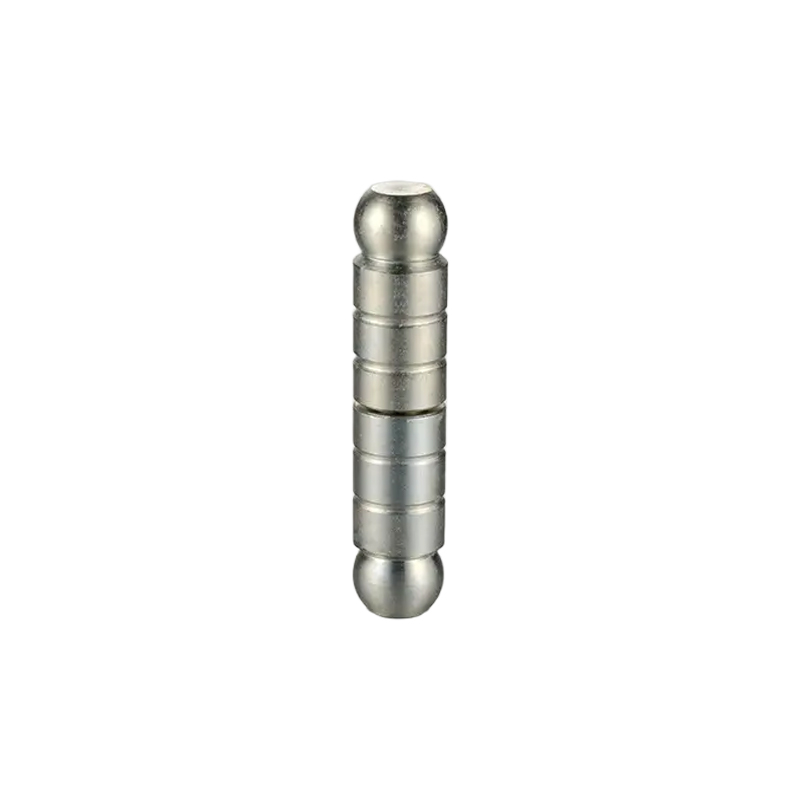No. 200 Gaoxin RD, Shanghua St, Lanxi, Zhejiang, P. R China
The Sliding Doors Steel Rack Pinion Gear is a critical component in va...
See DetailsTriangle sliding gates are widely used in both industrial and residential settings due to their efficient space utilization and robust performance. A key component that ensures the smooth operation of these gates is the steel wheel. Selecting the appropriate steel wheel for a triangle sliding gate requires careful consideration of several factors, including load capacity, durability, environmental conditions, and maintenance requirements.

Steel wheels are favored in sliding gate applications for their strength and resistance to deformation under heavy loads. In the case of triangle sliding gates, which often carry significant weight due to their size and structural design, steel wheels provide the necessary support and stability. The wheels bear the load of the gate and facilitate its movement along the track, making their durability critical for safe and reliable operation.
The load capacity of steel wheels must match or exceed the total weight of the gate to prevent premature wear or failure. Wheels made from hardened steel or stainless steel are commonly chosen for their hardness and corrosion resistance, particularly in outdoor environments where exposure to moisture and dirt is inevitable. Hardened steel wheels offer wear resistance, while stainless steel wheels provide enhanced corrosion protection, especially in coastal or humid areas.
Another consideration is the wheel's design, which influences the ease of movement and noise levels. Wheels with integrated sealed bearings reduce friction and allow smoother rotation, decreasing wear on both the wheel and the track. Sealed bearings also protect against the ingress of dust and moisture, extending the wheel's service life and reducing maintenance frequency.
Commercial ball bearing hinges have become an integral part of modern door and gate hardware, offering a significant improvement over traditional hinge designs in terms of durability, smoothness, and load capacity. Their emergence is rooted in the evolving needs of both industrial and commercial applications where heavy doors and gates require reliable and low-maintenance hardware.
Historically, standard hinges often consisted of simple metal barrels with a pin, which created considerable friction during operation. This friction not only caused wear and tear on the hinge components but also made opening and closing doors or gates more laborious. In high-traffic commercial environments, such as warehouses, factories, and public buildings, the need for hinges that could withstand frequent use without degrading became apparent.
Ball bearing technology provided a solution by incorporating small, precision steel balls within the hinge barrel. These bearings distribute the load evenly and reduce direct metal-to-metal contact between the hinge's moving parts. The result is a hinge that operates more smoothly, with less resistance and significantly reduced wear. This innovation extended the service life of hinges and decreased maintenance needs.
The commercial application of ball bearing hinges gained momentum alongside advances in manufacturing techniques, such as precision machining and improved metallurgy, which allowed for the production of durable, standardized components at scale. As building codes and safety standards became more stringent, ball bearing hinges also helped meet the demand for hardware capable of supporting heavier doors with consistent performance.
In addition to durability, commercial ball bearing hinges improved user experience by reducing noise and facilitating easier door operation. This was especially important in environments where quiet operation was necessary, such as hospitals and office buildings.
Over time, the design of ball bearing hinges has evolved to include features such as corrosion-resistant finishes, self-lubricating bearings, and adjustable tension. These improvements have expanded their applicability beyond industrial doors to residential and specialized commercial uses.